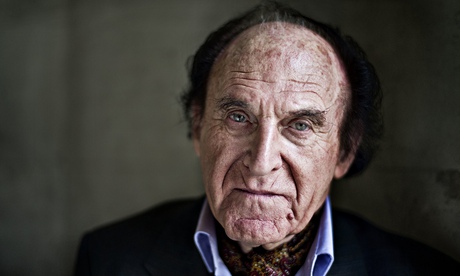
Otto Dov Kulka's exploration of the time he spent in Auschwitz as a child has won the Jewish Quarterly-Wingate prize.
Widely acclaimed in reviews – the Observer called it "one of the essential books to emerge in recent years" – Kulka's Landscapes of the Metropolis of Death tells how he was sent as a boy from Terezín ghetto to the Familienlager (family camp) of Auschwitz-Birkenau, escaping death because he was in hospital recovering from diphtheria at the time of the closure and death marches.
It beat works including Edith Pearlman's short story collection Binocular Vision and Shani Boianjiu's novel about life for three young women conscripted into the Israeli army, The People of Forever Are Not Afraid, to win the £4,000 award, which has been taken in the past by Imre Kertész, Amos Oz and WG Sebald.
The panel called Kulka's work "the greatest book on Auschwitz since Primo Levi", with the chair of judges, Rachel Lasserson, saying the Czechoslovakia-born author had "achieve[d] the impossible; a mythological and strangely beautiful new language for living with Auschwitz".
Translated by Ralph Mandel, the book is the Hebrew University of Jerusalem professor's look at the "images that well up" in his memory, "those fragments of memory and imagination that have remained from the world of the wondering child of 10 to 11 that I once had been" – an exploration of "what in my private mythology is called 'the Metropolis of Death'".
In the Guardian, Thomas Laqueur also compared the memoir to Levi. "Primo Levi's testimony, it is often said, is that of a chemist: clear, cool, precise, distant," he wrote. "So with Kulka's work: this is the product of a master historian – ironic, probing, present in the past, able to connect the particular with the cosmic. His memory is in the service of deep historical understanding, rendered in evocative prose that is here eloquently translated from Hebrew."
• This article was amended on 3 March 2014. An earlier version misspelled Ralph Mandel's name as Ralph Mendel.

